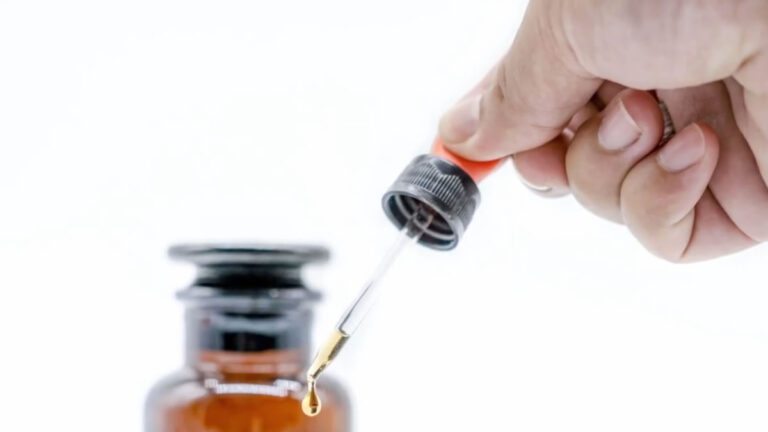Cannabidiol (CBD), a naturally occurring compound found in the flowers and leaves of cannabis plants, has gained significant attention for its potential health benefits. Unlike THC, CBD is non-psychoactive, meaning it cannot produce a "high" regardless of the amount consumed. The effects of CBD can vary depending on the type and strength of the product used, as well as the dosing method.
To better understand how long it takes to feel the effects of CBD and how long they last, we consulted with Boris Shcharansky, the Chief Operating Officer at Papa & Barkley, a leading cannabis wellness company. Shcharansky shared valuable insights on the potential benefits of CBD, the various dosing methods available, and how to achieve the desired effects as quickly as possible.
Potential Benefits and Effects of CBD
While CBD products are not currently approved by the FDA, ongoing research suggests that CBD may offer a wide range of potential health benefits. Some of the most promising benefits include:
- Reducing Muscle Pain and Inflammation: CBD interacts with the body's endocannabinoid system to reduce inflammation and modulate pain signals, making it a popular choice among athletes and those with chronic pain conditions.
- Easing Anxiety and Stress: CBD's calming properties may help reduce symptoms of anxiety and stress by interacting with serotonin receptors in the brain, promoting relaxation and focus without the psychoactive effects associated with THC.
- Treating Nausea: CBD's influence on serotonin receptors also plays a role in the brain's response to nausea and vomiting, making it a potential treatment option for individuals undergoing chemotherapy or those with digestive disorders.
- Improving Sleep: By easing muscle pain and stress, two common causes of insomnia, CBD's relaxing effects may help users fall asleep faster and experience more restful, uninterrupted sleep.
CBD Effects Based on Dosing Methods
The onset time and duration of CBD effects can vary significantly depending on the dosing method employed. Shcharansky breaks down the differences between topical and ingestible forms of CBD:
- Topical Forms of CBD: CBD topical products, such as balms, ointments, and lotions, typically take effect almost immediately. Users can expect to feel relief from inflammation and certain skin conditions within about 15 minutes of application, with effects lasting for around two to six hours, depending on the dosage and severity of the condition being treated.
- Ingestible Forms of CBD: For ingestible products, like tinctures, capsules, and gummies, the onset time and duration of effects can vary. When kept under the tongue, tinctures are typically absorbed within 30 seconds, with effects felt within 15 minutes. When swallowed or consumed in food, the effects of CBD may take anywhere from 45 minutes to two hours to manifest, lasting up to six to eight hours, with peak effects occurring around two to four hours after ingestion.
Determining the Appropriate Dosage
When starting with CBD, Shcharansky advises against taking high doses immediately. Instead, he recommends waiting the appropriate period of time before increasing the dose. "Ingesting CBD is typically associated with more attentiveness, less anxiety, and less inflammatory-related pain," he explains. "While higher doses—over 200 milligrams—have been associated with drowsiness." Dosing should be determined systematically on an individual basis.
To feel the effects of CBD as quickly as possible, Shcharansky suggests taking a tincture sublingually by dropping it under the tongue, waiting a few seconds, and then swallowing. However, he emphasizes that the benefits of CBD are more about cumulative effects rather than immediate results. "If you take CBD daily, you'll continuously reduce your inflammation, which over time, should reduce your pain and keep flare-ups at bay," he adds.
Frequently Asked Questions
-
Is CBD different than THC?
Yes, CBD and THC are different compounds found in cannabis. While THC is psychoactive and produces a "high," CBD is non-psychoactive and is often used for therapeutic purposes like reducing pain, anxiety, and inflammation.
-
Who shouldn't take CBD oil?
Pregnant or breastfeeding women should avoid taking CBD oil due to the lack of studies on its effects on fetal development and breastfeeding infants. CBD can also interact with certain medications, such as blood thinners, antidepressants, and those that affect the liver. People with low blood pressure should also exercise caution, as CBD can cause a drop in blood pressure.
-
Can you take too much CBD?
While generally considered safe, taking too much CBD can lead to side effects like dizziness, drowsiness, dry mouth, nausea, and diarrhea. It's crucial to start with a low dose and gradually increase it to find the right amount for you, always consulting with a healthcare professional before significantly increasing your dosage.
As the CBD market continues to grow and more people seek natural alternatives for managing pain, anxiety, and other health concerns, it is essential to stay informed about the potential benefits, dosing methods, and onset times associated with CBD products. By understanding how CBD works and following expert advice on dosing and consumption, users can maximize the potential benefits while minimizing the risk of adverse effects.


